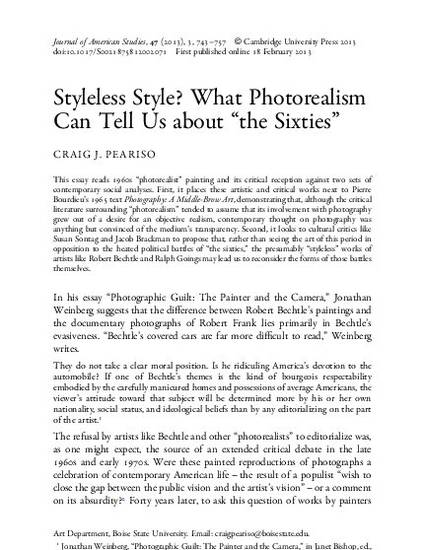
This essay reads 1960s “photorealist” painting and its critical reception against two sets of contemporary social analyses. First, it places these artistic and critical works next to Pierre Bourdieu's 1965 text Photography: A Middle-Brow Art, demonstrating that, although the critical literature surrounding “photorealism” tended to assume that its involvement with photography grew out of a desire for an objective realism, contemporary thought on photography was anything but convinced of the medium's transparency. Second, it looks to cultural critics like Susan Sontag and Jacob Brackman to propose that, rather than seeing the art of this period in opposition to the heated political battles of “the sixties,” the presumably “styleless” works of artists like Robert Bechtle and Ralph Goings may lead us to reconsider the forms of those battles themselves.
This document was originally published by Cambridge University Press in Journal of American Studies. Copyright restrictions may apply. DOI: 10.1017/S0021875812002071.
Available at: http://works.bepress.com/craig_peariso/4/
